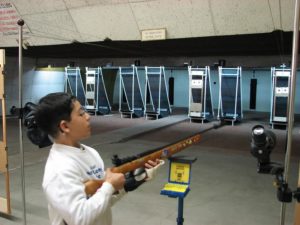Air Weapons – The Law & Proposed Reforms

An air weapon is different from a firearm as it does not contain any explosive substance. When the trigger is pulled on an air weapon the pellets are forced from the barrel by the release of compressed air or other gas.
The licensing of air weapons is different across the UK:
- In England and Wales there is no need to acquire a licence to hold an air weapon.
- In Scotland air weapons owners need a specific air weapons licence.
- In Northern Ireland air weapons owners need a firearms licence.
It an offence to sell or gift an air weapon (or ammunition) to a person under 18. It is also an offence to not to take reasonable precautions of those under 18 in possession of an air weapon.
Whilst people under the age of 18 cannot buy, hire or be gifted an air weapon, they may have an air weapon under certain circumstances:
- They are supervised by someone aged 21 or over,
- They are shooting as a member of an approved target shooting club,
- They are shooting at a shooting gallery/ rifle range,
- They are aged 14 or older and are shooting on private premises with the consent of the owner of the premises.
Currently, the only data published on prosecutions of air weapons offences are for the offence of ‘firing an air weapon beyond premises’. This is known as an offence if a missile is fired out of the premises in which the occupier has consented to. In 2019, there were 6 prosecutions and 5 convictions for ‘firing an air weapon beyond premises’.
Since 2018, the number of prosecutions has been low compared to previous years. In 2017 there had been 21 prosecutions and 12 convictions, and the 2018 figures (5 prosecutions and 4 convictions) were the lowest for at least eleven years. In total, between 2008 and 2019, there were 266 prosecutions for this offence, and 216 convictions. There were also 127 cautions issued during this time.
There are no official statistics on attacks on animals but the RSPCA has regularly revealed figures on the number of calls it receives relating to attacks on animals using air weapons. In January 2018, the RSPCA claimed in a press release that it had received 4,500 calls in five years (2013-2017) alleging attacks on animals using air weapons. This averages at around 900 calls per year. These attacks related to at least 5,600 animals or around 1,100 per year.
The most commonly attacked animals in 2017, according to these reports, were wild birds, followed by cats, wild mammals, and dogs. Similar data for 2018 showed that there were 258 reported attacks on cats and 73 attacks on dogs, although a full breakdown by animal type is not available.
The RSPCA has also released figures showing the areas where they received the most complaints about animals being injured by air weapons. In 2018, Yorkshire and the Humber had the most reported attacks, as a region.
The Government announced a review of air weapons regulation in England and Wales on 10 October 2017. The review was after following a request from a Dr Peter Dean who wrote to the Minister following the death of 13-year-old Benjamin Wragge. Benjamin died after being accidently shot with an air weapon.
The Government said that the review would (amongst other things) consider “evidence from Scotland and Northern Ireland, where air weapons are under a licensing regime.”
The Government published the findings of their review in November 2020 as part of its discussion on firearms safety. It has decided not to introduce a licensing regime for England and Wales. Instead it is proposing to amend the existing age restrictions for air weapons.
The Government has decided to:
- Making it an offence to fail to lock up an air weapon and its ammunition separately when it is not being used and it is in a property where under 18’s live.
- Preventing individuals from the age of 14 to have unsupervised possession of air weapons on private premises.
How can we help?
Firearms possession is a complicated area of law. We ensure we keep up to date with any changes in legislation and case law so that we are always best placed to advise you properly. If you would like to discuss any aspect of your case, please contact 0845 200 3367 or tuckers@tuckerssolicitors.com